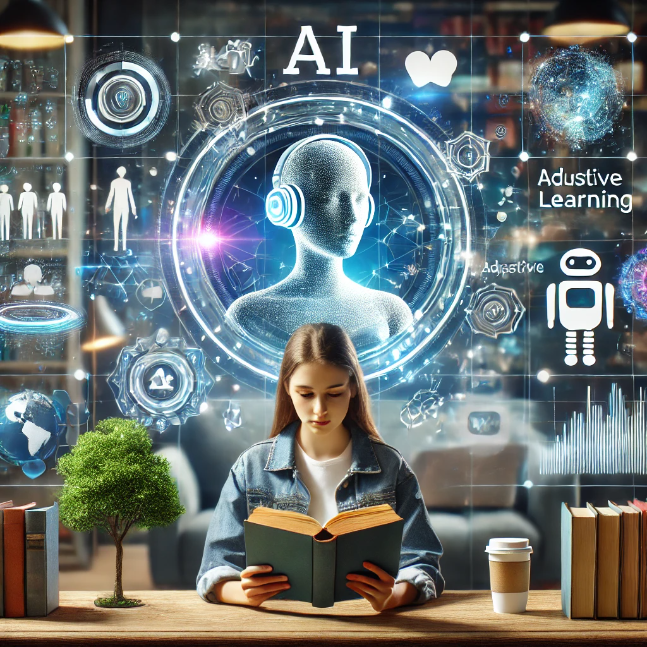Artificial Intelligence: Personalized Reading Experience

In the rapidly evolving landscape of technology, artificial intelligence (AI) stands out as a transformative force reshaping various industries. Among these, the realm of reading and literature is undergoing a significant metamorphosis. AI's capabilities in analyzing data, learning user preferences, and offering personalized experiences are revolutionizing the way we engage with books. This article delves into the myriad ways AI is crafting a personalized reading experience, making literature more accessible, engaging, and tailored to individual preferences.
Understanding AI in Reading
Artificial intelligence, at its core, involves the development of computer systems that can perform tasks typically requiring human intelligence. These tasks include learning, reasoning, problem-solving, perception, and language understanding. In the context of reading, AI harnesses these capabilities to analyze vast amounts of data, understand user behavior, and deliver customized content.
The Evolution of Personalized Reading
The concept of personalized reading is not entirely new. Traditional methods, such as book recommendations from librarians or curated reading lists, have long aimed to match readers with books they are likely to enjoy. However, these methods rely heavily on human judgment and have limitations in scale and precision. AI transcends these limitations by leveraging vast datasets and sophisticated algorithms to offer highly accurate and personalized reading experiences.
Key Components of AI-Driven Personalized Reading
Recommendation Systems
One of the most visible applications of AI in reading is recommendation systems. Platforms like Amazon, Goodreads, and personalized eBook services use AI to suggest books based on a user's reading history, preferences, and behavior. These systems employ machine learning algorithms to analyze patterns and make predictions about what readers might enjoy next. By continuously learning from user interactions, these recommendation systems become more accurate over time, offering increasingly tailored suggestions.
Adaptive Learning Platforms
In educational settings, AI-powered adaptive learning platforms are revolutionizing the way students engage with reading materials. These platforms assess a student's proficiency, learning style, and progress to provide customized reading assignments and resources. By adapting content to individual needs, these platforms enhance comprehension and retention, making learning more efficient and enjoyable.
Interactive and Conversational AI
Conversational AI, including chatbots and virtual assistants, is making waves in the reading world. These AI entities can engage in dialogue with readers, answering questions, offering summaries, and even discussing themes and characters. For example, imagine reading a complex novel and having an AI assistant available to clarify plot points, provide historical context, or discuss literary devices. This interactive approach enriches the reading experience and deepens understanding.
Text-to-Speech and Audiobooks
AI-driven text-to-speech (TTS) technology has dramatically improved the accessibility of books. High-quality, natural-sounding AI voices can read text aloud, making literature accessible to visually impaired individuals and those who prefer auditory learning. Furthermore, AI can analyze and interpret text to provide nuanced and expressive narration, enhancing the appeal of audiobooks.
Personalized Content Curation
Beyond recommending books, AI can curate content within a book to match a reader's interests. For instance, AI can highlight passages, provide additional information on specific topics, and offer contextual insights. This feature is particularly valuable in non-fiction and academic reading, where readers often seek in-depth understanding of particular subjects.
Reading Analytics and Insights
AI can track and analyze reading behavior, offering insights into how readers engage with texts. Metrics such as reading speed, time spent on each page, and sections revisited can help identify areas of interest or difficulty. These insights enable authors and publishers to refine their content and tailor it to audience preferences, ultimately enhancing the overall reading experience.
Benefits of AI-Personalized Reading
Enhanced Engagement
Personalized reading experiences keep readers engaged by aligning content with their interests and preferences. When readers encounter books and materials that resonate with them, they are more likely to read frequently and for longer durations.
Improved Accessibility
AI technologies, such as TTS and interactive assistants, break down barriers for individuals with disabilities, making literature more accessible. This inclusivity fosters a diverse and engaged readership.
Efficient Learning
In educational contexts, AI personalization helps students learn more effectively by providing materials that suit their learning pace and style. This tailored approach can lead to better academic outcomes and a more positive learning experience.
Increased Discoverability
AI-driven recommendations help readers discover new books and authors they might not have encountered otherwise. This increased discoverability benefits both readers, who find content they enjoy, and authors, who reach a wider audience.
Challenges and Considerations
While the benefits of AI-personalized reading are substantial, there are challenges to address. Privacy concerns arise when collecting and analyzing user data. Ensuring data security and obtaining user consent are crucial for maintaining trust. Additionally, the algorithms driving AI recommendations must be transparent and unbiased to avoid reinforcing narrow reading habits or excluding diverse voices.
The Future of AI in Reading
The integration of AI in reading is still in its early stages, but the future holds immense potential. As AI technologies continue to evolve, we can expect even more sophisticated and intuitive personalized reading experiences. Future advancements may include AI-driven content creation, where algorithms assist authors in writing and editing, and more immersive reading experiences through augmented and virtual reality.
Conclusion
Artificial intelligence is redefining the reading experience, making it more personalized, accessible, and engaging. By leveraging AI's capabilities, we can connect readers with content that resonates with them on a deeper level. As we navigate the exciting possibilities of AI in literature, it is essential to balance innovation with ethical considerations, ensuring that the future of reading is inclusive, diverse, and enriching for all.
For further insights into how AI is transforming the storytelling landscape, explore our comprehensive article on The Evolution of Storytelling: Virtual and Augmented Reality VR AR in Books.



